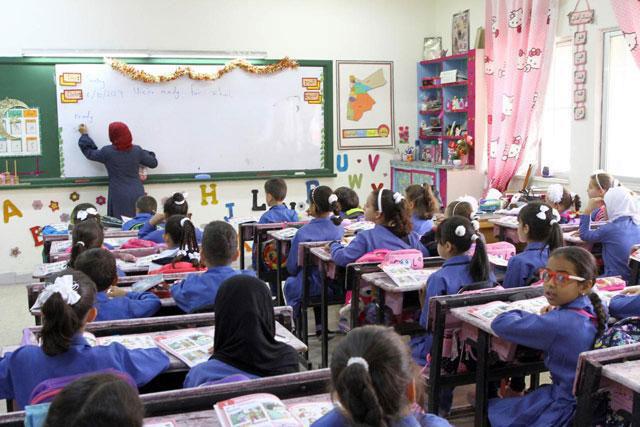You are here
Funding gap for nurseries in gov’t workplaces adds to working mothers' woes
By Maram Kayed - Jul 12,2019 - Last updated at Jul 12,2019
AMMAN — Insufficient government funding is taking a toll on nurseries offering childcare to mothers in the public sector, according to the National Council for Family Affairs (NCFA).
The council, in cooperation with the Ministry of Labour, signed an agreement in 2017 to build 70 nurseries in government office buildings, NCFA head Mohammed Miqdadi said.
The purpose is to “boost women’s participation in the workforce” and “encourage early childhood education”, Miqdadi told The Jordan Times over the phone.
He added that according to the agreement, the council would fund the building of these nurseries, which cost around JD20,000 each, in addition to paying the salaries of the caretakers for one year.
“By the end of last year we had started receiving official statements from some public institutions saying that they lacked the funding to keep the nurseries running, and asking us to extend our payments — which is not only beyond our ability but also outside the scope of the agreement,” said Miqdadi.
Some 25 nurseries have sent official statements, although the council’s head estimated the numbers to be much higher.
At its core, the problem is that the Prime Ministry approved the building of the nurseries but did not allocate any funds for hiring caretakers, according to the head of the women’s work department at the Ministry of Labour, Eman Okour.
“There is a real gap between the building process and the hiring process. Some ministries, for example, had nurseries long before the project with the council. They were built by the government, but are paid for by internal agreements between the ministry’s workers. That is to say: The government does not pay for the hiring of caretakers,” Okour explained.
Miqdadi confirmed that the Ministry of Labour and the Ministry of Social Development had operational nurseries before the project, suggesting that the way to solve the problem could be to either “ask for government funding or follow the example of the two ministries and ask the employees to pay a small amount for the caretakers”.
Okour added: “The ideal way would be for the entities to provide this service for their employees, but right now, the more practical solution is to treat these nurseries as external, private ones.”
Currently, around 220 women are employed in the 25 nurseries, and the council intends to build 22 more nurseries by the end of this year, according to council numbers.
“It is not just the working mothers and fathers who would be at a great disadvantage if the nurseries close, or the council which has paid more than JD20,000 per nursery, but also the workers who had been waiting in line for years in the Civil Service Bureau,” Miqdadi said.
Related Articles
AMMAN — By the end of 2018, a total of 38 nurseries benefitting more than 1,500 children of working mothers will be built in various public
AMMAN — The deputy prime minister and National Council for Family Affairs (NCFA) deputy chairperson, Rajai Muasher, on Sunday headed the cou
AMMAN — Mounting calls for the return of in-class education in schools due to many students and parents’ dissatisfaction with online educati

















